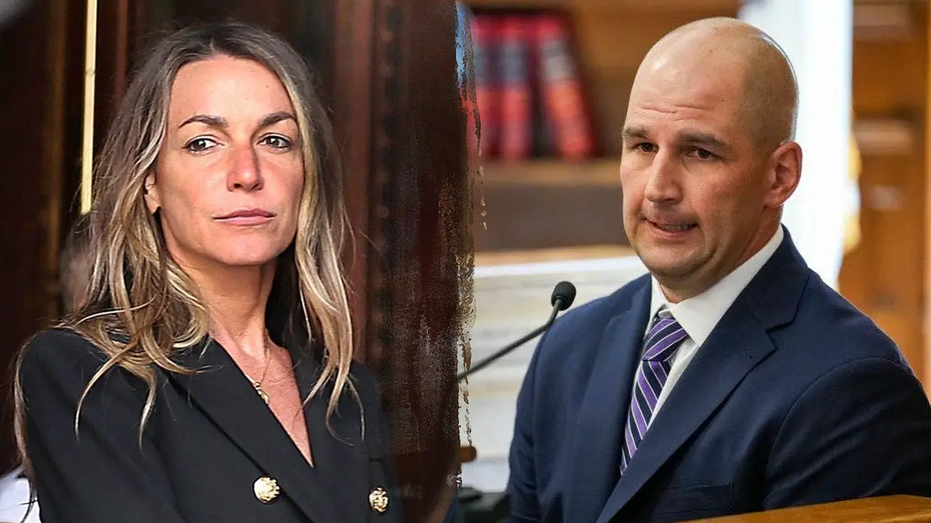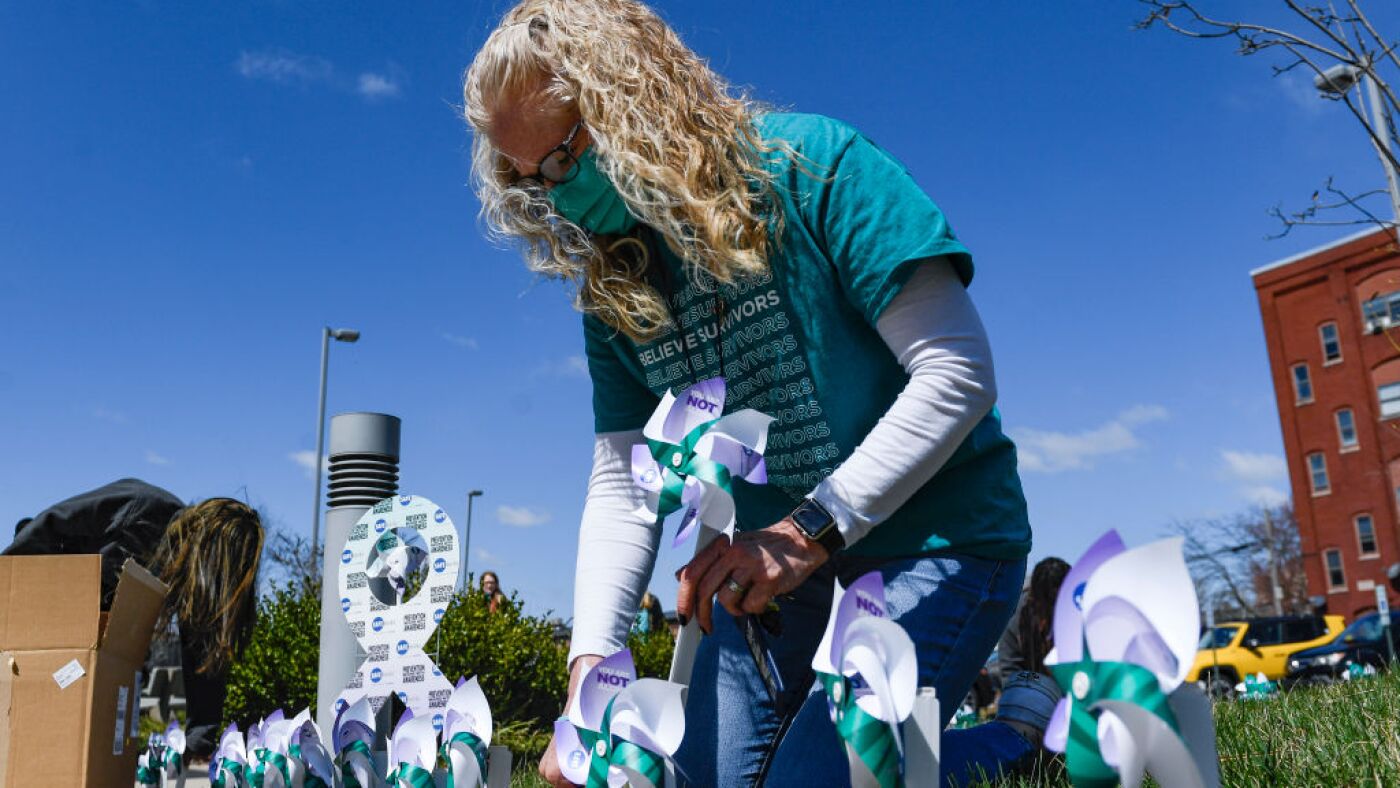A catastrophe is unfolding at the top US health agency — and it will put American lives at risk
When Robert F. Kennedy Jr. sought to be confirmed as Donald Trump’s secretary of Health and Human Services (HHS), he had to overcome a long record of fringe anti-science beliefs. He had indulged in conspiracies about chem trails, questioned whether HIV was the actual cause of AIDS, and, most notably, spread the repeatedly debunked theory […]


When Robert F. Kennedy Jr. sought to be confirmed as Donald Trump’s secretary of Health and Human Services (HHS), he had to overcome a long record of fringe anti-science beliefs. He had indulged in conspiracies about chem trails, questioned whether HIV was the actual cause of AIDS, and, most notably, spread the repeatedly debunked theory that childhood vaccinations could lead to autism.
In private meetings with senators and public confirmation hearings, he downplayed that record and claimed he wasn’t anti-vaccine: “I am pro-safety,” Kennedy said in his opening statement at one hearing. “I believe vaccines have a critical role in health care.” He gave assurances to Sen. Bill Cassidy of Louisiana, an MD and one of the last Republican holdouts on his nomination, that he would not change federal vaccine guidance
But less than two months into his term, Kennedy is blocking the release of pro-vaccine data amid a widening measles outbreak even as he puts into motion long-term projects that seem set to further erode Americans’ wobbly trust in childhood vaccination. Coupled with the massive staff cuts at HHS, a weakened federal health department is being remade in Kennedy’s anti-vax, anti-science image — an overhaul that could have dangerous consequences for Americans’ health for years to come.
On Tuesday, the Trump administration began to lay off 10,000 workers across HHS, which includes the Food and Drug Administration, the Centers for Disease and Control and Prevention, and the National Institutes of Health. Combined with workers who had already departed or were laid off earlier, the department’s overall headcount is expected to shrink from 82,000 to 62,000 people.
Many rank-and-file staff were simply let go; some senior leaders were offered reassignment in different roles, sometimes in a different part of the country, according to the New York Times. Subagencies focused on substance abuse and environmental health that were previously allowed some independence are being brought under HHS’s direct supervision. Top deputies who might have clashed with Kennedy — such as the FDA’s senior vaccine official, Peter Marks, one of the architects of the highly successful Operation Warp Speed in Trump’s first term — are being forced out.
HHS touches the lives of Americans from birth to death: It oversees Medicaid and Medicare, which cover one in three Americans, it sets the standards for medical care across the health system, including vaccine schedules; and it is the biggest funder of the kind of vital medical research in the country that leads to new medical treatments.
Trump promised during the 2024 campaign to let Kennedy “go wild”; now he and his subordinates have the means to execute his vision.
Some of the effects are being seen immediately as a massive measles outbreak spreads. Other reverberations in public health and medical research may not be fully felt for years. Former federal officials say the overhaul represents a fundamental reimagining of what HHS should be, a withdrawal from an active government role in the safeguarding of America’s health. We could be living with the consequences of these changes for a long time.
“This is not a so-called restructuring. These are reckless, thoughtless cuts that will only make American communities less healthy and less safe,” Dr. Richard Besser, president and CEO of the Robert Wood Johnson Foundation and a former acting CDC director, said in a statement. “They represent an abdication of the department’s essential responsibility to promote and protect health.”
More than an abdication, Kennedy’s new regime is steering the department in a radically new direction — one that seems poised to send American health backward.
The immediate dangers of RFK Jr.’s health care overhaul
Kennedy’s leadership is already making the biggest US measles outbreak since 2019 worse. The number of cases across five states is nearing 500, twice as many as the United States saw in all of 2024, and two people, including an unvaccinated child, have died.
Some experts believe it may take up to a year for the disease’s spread to be brought under control. Epidemiologist Michael Mina wrote this week in the New York Times that the US could see tens of thousands of cases. More people would die, and many of the ones who survived could be more vulnerable to other viruses in the future after the measles virus wipes out many of their preexisting antibodies.
The response to the current measles outbreak is a good measurement of just how much Kennedy has changed things. During Trump’s first term, the president himself urged people to get vaccinated to stop a measles outbreak. Now, Kennedy, as the nation’s top health official, is instead using his enormous platform to undermine the importance of the measles vaccine while the virus rapidly spreads. (Measles vaccination is the best way to protect yourself against the virus, and health officials even encourage unvaccinated people who have already been exposed to get a shot because it could reduce their symptoms.)
Kennedy has extolled vitamin A and cod liver oil as treatment options, but doctors caution that, while vitamin A could benefit someone who is vitamin-deficient when they contract the measles, almost no one in the US has a vitamin A deficiency.. A Texas doctor hawking those remedies to patients skeptical of vaccines said he has been in direct contact with the HHS secretary during the outbreak.
Kennedy isn’t just using the bully pulpit to pitch pseudoscience. His department is now actively suppressing information about the value of the measles vaccine during the outbreak, according to ProPublica. A CDC forecast that would have shown the risk of catching measles is higher in less vaccinated areas was shelved, after the agency originally planned to release it as encouragement for people to get the measles shot. The CDC justified its scrapping of the report by claiming the data “does not say anything that the public doesn’t already know.”
Even as the emergency grows more serious, Kennedy is reducing his own infectious disease staff: One workgroup focused on vaccinating underserved communities was eliminated as part of the layoffs. HHS has also pulled back grants that support the state and local health workers who are frontline responders. According to Reuters, health officials in Lubbock County, Texas, near the epicenter of the crisis, had their funding halted for several grants that were being used to support work on the outbreak.
At the same time, Kennedy is launching a systemic analysis of any supposed links between childhood vaccines and autism — a link that has already been refuted by previous scientific analyses. He has placed a long-discredited anti-vaccine researcher in charge of it.
Americans’ trust in vaccines had been slipping before the pandemic, and then widespread conspiracies about the Covid shots helped make those views even more mainstream. A federal probe that seems designed to sow distrust could drive vaccination rates lower.
The national measles vaccination rate has already slipped just below the 95 percent target that experts say is necessary to maintain population-level immunity. The speed of that decline has been alarming: In the 2019–2020 school year, 20 states were above the 95 percent vaccination rate threshold, and just three had dropped below 90 percent. But by the 2023–2024 school year, only 11 states had more than 95 percent of schoolchildren vaccinated against the disease, and 14 states had fallen under 90 percent.
In individual communities, rates have slipped even lower, which creates the right conditions for an outbreak to explode; measles, after all, is one of the most contagious diseases known to humanity. In the Texas school district most affected by the current measles outbreak, the vaccination rate is under 50 percent.
What this means is that measles outbreaks could again become a recurring public health nuisance, 25 years after the US declared the virus was no longer spreading within the country.
At the same time measles is spreading, a potential H5N1 bird flu pandemic is brewing: The virus has been found in nearly 170 million birds and 1,000 livestock herds; 70 humans have been infected. On that disease, too, Kennedy is signaling a more hands-off approach: He has suggested allowing the virus to spread unchecked through factory farms, and the department is threatening to end a recent contract to develop a universal pandemic flu vaccine. One of the groups laid off this week were scientists testing pet foods for any trace of the virus.
The long-term implications of RFK’s MAHA agenda
Other long-running health campaigns will be jeopardized by the combination of HHS cuts and Kennedy’s fringe beliefs. In a 2021 book, Kennedy favorably presented the discredited theory that drug use, not HIV, was responsible for the development of AIDS. Now, despite Trump’s previous pledge to eradicate HIV completely, Kennedy’s department is pulling back on one of the defining health crises of the modern era.
Staff at the CDC Division of HIV Prevention office was cut in half as part of the mass layoffs. They had made great strides thanks to a muscular government approach: New HIV infections declined by 12 percent since 2010, aided by public health campaigns and direct subsidization of HIV treatment. Deaths have steadily fallen as better disease management allowed doctors to turn HIV into a chronic condition patients could live with, rather than a death sentence.
Now the programs and medical research grants on the HIV crisis that made that progress possible are being cut. One analysis projected there would be 143,000 more HIV cases and 14,000 more deaths in the US by 2030 as a result, according to Anna Person, an HIV physician at the Vanderbilt University Medical Center.
“Many people who have been living with HIV for decades are afraid we are returning to the 1980s era of HIV, when many buried countless friends and loved ones,” Person said in a media briefing this week. “They ask how it makes sense to cut prevention funds or endanger access to HIV medications? My answer: It doesn’t. These actions are inefficient and will lead to increases in health care costs.”
The prospects for future drug development could also grow dimmer given the massive funding cuts at NIH. The federal government does not manufacture drugs itself, but the basic research supported by NIH is critical for identifying possible targets for pharmaceutical interventions that private companies then work to develop. The vast majority of prescription drugs approved in the US benefited from the kind of federal medical research funding that will be reduced by billions of dollars in the second Trump term. Other changes could further slow down drug approvals: Some of the FDA staff who were laid off had been dedicated to approving new medications.
He could even reorient substance abuse treatment, just as the US is finally making progress in reducing the long-running scourge of fentanyl deaths. Kennedy, who is in recovery himself, has endorsed some unusual ideas for addiction care, such as sending people to so-called wellness farms where they would attempt to break their habit while participating in. It’s a concept that has failed in the past, and experts remain skeptical of its value today versus other more mainstream harm reduction strategies.
Public health is often slow and steady work, except when there is an emergency. We saw the consequences of an ill-equipped federal government during Covid, and the measles outbreak will test what happens when federal authorities are disinterested in an ongoing public health threat.
But it is in these longer-term trends, a lack of new scientific advances or the warping of public attitudes toward vaccines, where the department’s death by a thousand cuts may be felt most.










































































